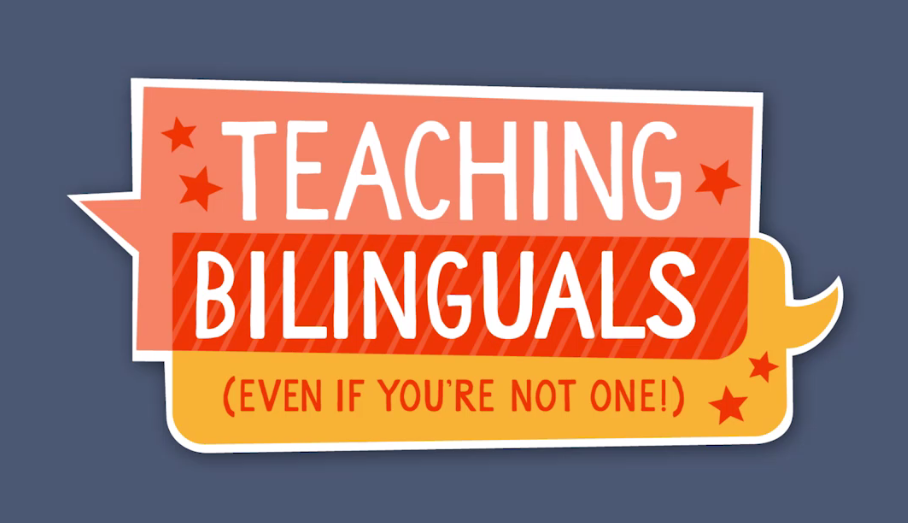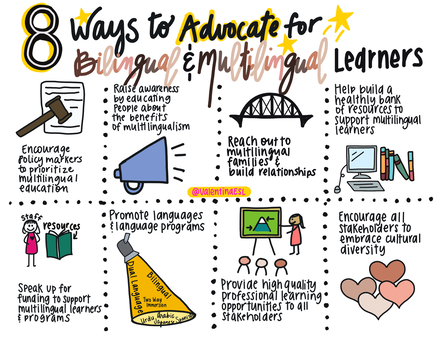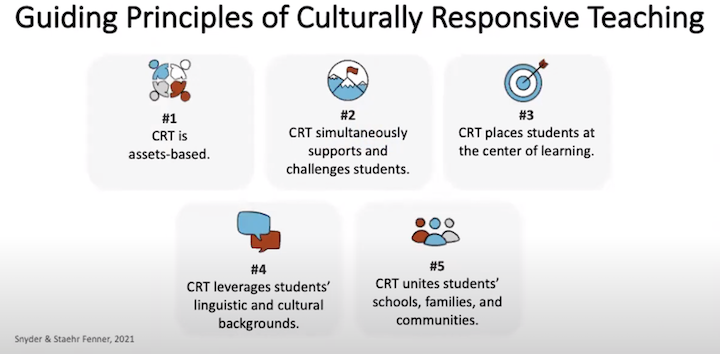Blog B3: Rodriguez, Collier, & "Teaching Multilingual Children" Videos
Being a multilanguage learner has its benefits and set backs in this society. On one hand it is very marketable to know more than one language, but on the other hand if your first language is other than English you might deal with some unpleasant experiences. Something Rodriguez says at the end really resonated with me; he states: "So they do not realize that while one suffers a diminished sense of private individuality by becoming assimilated into public society, such assimilation makes possible the achievement of public individuality" (Rodriguez, p. 39). For me to fit into the American culture and society I have had to lose some aspects of my Latinx culture. I wouldn't be able to move so freely if my public persona was less American. I see it from colleagues and even friends and family; so often they will otherize anyone that keeps ahold of their ethnicity, even when they are born and raised in America. I see the discrimination when it comes to my mother because she was never really able to lose her accent, and people treat her as outside of the general public society. This also reminds me of Delpit. At some point our private individuality shuts up to allow for the public individuality.
On the other hand Collier approaches the topic of multilingual learners in a more inclusive way. Where Rodriguez was drilled to perfect his English and drop his heritage/culture, Collier talks about leveraging multilinguals' assets to give them a better educational experience. Collier also points out the many misconceptions people have about English language learners. The idea that once a student knows basic English they will do well in school is a falsehood, "People untrained in linguistics, particularly politicians, tend to believe that if limited English proficient students can converse with their monolingual English-speaking peers, then these English-language learners can compete with them on an equal footing" (Collier, p. 225). So instead of thinking this way, or taking the approach that Rodriguez's teachers took, Collier argues that we need to incorporate as much of the 1st language as possible, as this will help maximize the students' achievements academically.
The Teaching Bilinguals Even if You're Not series does a great job taking Collier and expanding it in away that is user friendly and with the voice of educators in the field. In the first episode they talk about the importance of teaching bilinguals and how bilingual education came about in the United States, "In the 1960s and 70s activists from Puerto Rican civil rights groups and others banded together and pushed back. They earned the right to educate the students in their communities bilingually. And they were right. Research shows that you have to leverage students' linguistic backgrounds in order to educate them." (0:26, Episode 1). The series is very earnest and well thought out series in which educators reflect on their practices and give quick advice to other educators of bilingual students. I also like how real it is, like in episode 2, "I think sometimes it might be a little intimidating feeling like I'm in my classroom opening up this door to something that I don't have control over. I'm not bilingual so it's a little scary. It's a little uncomfortable, but it's so important" (0:02, Episode 2). It can be very intimidating trying something that you don't understand, but the same goes for our students. Learning a new language can be scary for our students, if they see you also trying to learn something new and putting yourself in a vulnerable state, they will feel better about trying it out as well. Multilingual learners have their own set of strengths and we must tease it out using both L1 and L2, "Tip 2: When it comes to academics Ms. Chapman-Santiago provides opportunities for students to show what they know using home language practices. That way she can see their strengths and their challenges" (2:10, Episode 4). The point is that education should not take away the student's L1 or heritage in order to be successful academically.
This video does a great job showing you A Day in the Life of an English Language Learner.




No comments:
Post a Comment